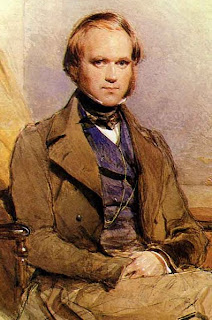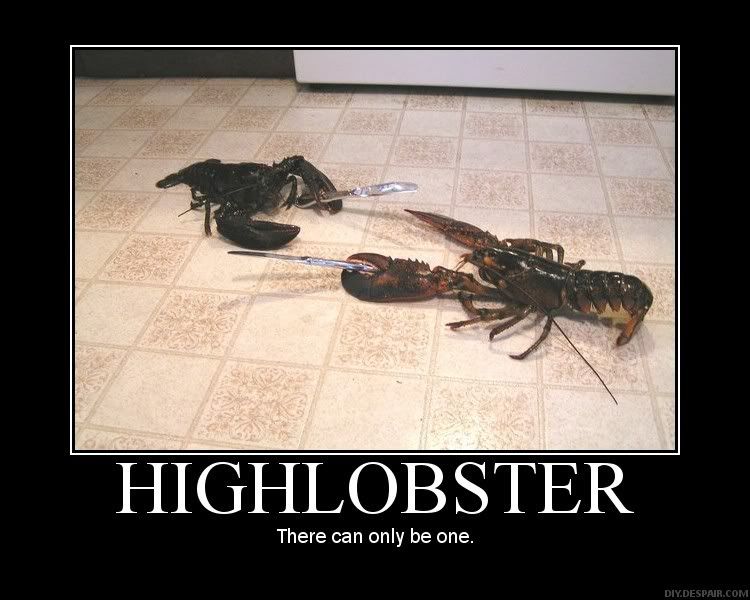It must be hard being a professional religious apologist. You essentially have swallow an entire belief system whole and defend its every questionable claim, gloss over its troubled history and current difficulties. There can be no doubt. No concession. No change of mind in response to new facts or new perspectives. It's simply you and them. They are wrong and you are right. And not only that, but "they" are vile, sinful people who stubbornly refuse what is so obviously true and good. Debate is not about figuring out truth but about winning, and you frequently have to be able to willfully misrepresent your opponent's position (i.e. lie) to win.
Enter Dinesh D'Souza, the Ann Coulter of religion. That is, if Ann Coulter weren't already the Ann Coulter of religion.
He's was interviewed by
Salvo, and a quick glance at their about page ("blasting holes in scientific naturalism, marveling at the intricate design of the universe, and promoting life in a culture of death", published by the St. James fellowship) gives you a little hint about which side of the debate the fall on. So after a shamefully sycophantic introduction (he's the smartest person ever, annihilator of atheists, "intrepid intellect", p.s. did we mention that he's smart?) they stand aside and hand him the mic, which is probably just as well.
At first glance, (aside from the perennial "who has the bigger
membership?" spat between Muslims and Christians) he initially comes off as relatively coherent and makes fairly reasonable summaries of positions that many atheists actually do hold - arguments that religion is divisive, that religious zealotry is a potent source of violence, the viral meme idea, the idea that religion may have had in role in social cohesion - including such "noble projects" such as the "crusades" (the dissonance involved in using those words in the same sentence must be formidable).
But it's not long before he drops the charade and starts good ol' fashioned vilifying: Satan, "the atheists' hero". Yeah, that makes sense. And while we're at it, we can talk about Loki, the Christian apologist's BFF.
His idea is that God is interfering with the way he wants to live his life. He simply doesn't like this Christian God with all of his commandments, the demand for complete allegiance, and his divine observance and scrutiny.
By the way, it's a constant theme with this guy that atheists really do believe that God - the Christian God - exists, but they're just too wicked and love the sinful lifestyle too much to be saddled down with piety. I don't get what all the fuss is about, it's not like public piety ever stopped many of the most devout religious men from putting in a little carnality (including the diving-suit variety) on their off time.
Hitchens asks, "If I play by the rules, what's my reward? Well, I basically get to be a servant boy in heaven. I don't want any of that. It sounds terrible."
Indeed, this is a common atheist objection. When you have preachers condemning everything from rock and roll to Dungeons and Dragons to video games, it doesn't take a genius to figure out that their version of paradise, cleansed from the sin of such delightful and utterly harmless activities and replaced with an eternity of mindless religious chanting wouldn't be very appetizing.
What D'Sousa doesn't get is that atheists obviously don't consider such fanciful claims to be probable in the slightest. It's not that we really know that heaven and hell exists and that we're all dying to get into hell to party it up with Darwin, Mark Twain, and George Carlin. It's that we don't believe in such things to begin with and we try to point out that the internal logic of that belief doesn't hold water - you waste so much time pining for a heaven that would be absolutely dreadful if it did exist!
Then he attacks caricatures of Dawkins' claims. Dinesh darts after the religious indoctrination as child abuse angle, chalking it up as evidence of a tyrannical, nigh-totalitarian, attempt to deny parents authority over their own kids even though Dawkins himself long ago
dismissed this (deliberate) misunderstanding of his remarks.
Personally, I think that parents forcing religion on their children (complete with all of Johnny's non-Christian playground friends burning eternally in hell, evolution denial, and the imminent rapture) might be a tad harmful on the young tyke and that it would be better to simply teach him
about religion and let him make up his own mind when he's older. I guess I'm the next Stalin in Dinesh's mind.
The entirety of his next paragraph is this seething, jealous rant about Dawkins. His pity would be much better spent on himself. Next.
I don't believe in unicorns, so I just go about my life as if there are no unicorns. You'll notice that I haven't written any books called The End of the Unicorn, Unicorns Are Not Great, or The Unicorn Delusion, and I don't spend my time obsessing about unicorns. What I'm getting at is that you have these people out there who don't believe that God exists, but who are actively attempting to eliminate religion from society, setting up atheist video shows, and having atheist conferences. There has to be more going on here than mere unbelief.
Exactly. The atheists doth protest too much! Who, in their right mind, would possibly oppose a belief that isn't true? Some of these same atheists use plenty of ink attacking creationism, homeopathy, and astrology and these are all credible beliefs.
The real reason, of course, is that atheists want tons of immoral sex and oppose God because he frowns of that sort of thing. "To get rid of God, then, is to remove the shadow of moral judgment." He's like a broken record with the whole atheists-are-in-it-for-teh-morality-carte-blanche thing.
If you really look at the motivations of contemporary atheists, you'll find that they don't even really reject Christian theology. It's not as if the atheist objects to the resurrection or the parting of the sea; rather, it is Christian morality to which atheists object, particularly Christian moral prohibitions in the area of sex.
Actually, I'd like to go on record that yeah, I do object to claims of raising the dead and parting of the Red Sea.
But yes, now that you mention it, the no-condoms-let's-get-pregnant-unexpectedly-and-maybe-pick-up-a-few-delightful-STDs-on-the-way thing is quite objectionable too. I'm not too fond of needless rashes and shotgun weddings, and I don't see how driving without a seatbelt is a moral thing to do.
The atheist looks at all of Christianity's "thou shalt nots"—homosexuality is bad; divorce is bad; adultery is bad; premarital sex is bad—and then looks at his own life and says, "If these things are really bad, then I'm a bad guy. But I'm not a bad guy; I'm a great guy. I must thus reinterpret or (preferably) abolish all of these accusatory teachings that are putting me in a bad light."
Or I could just look at homosexuality as not applicable, divorce as better than a lifetime of marital misery if you're in that sort of situation, cheating is bad for obvious and completely non-religion-related reasons, and premarital sex is
awesome.
And to wrap it all up (at least, the portion of idiocy that I have the patience to wade through), he declares that atheism is dying out. It's the apologist's version of constant creationist claims that evolution will be dead in a week. Unsurprisingly, it doesn't seem backed up by the facts at all (almost as if it was an outright lie) -
Christianity in general has declined in America and the No Religion/Atheist/Agnostic category has seen huge gains. I'm sure it's all part of atheism's death throes.












